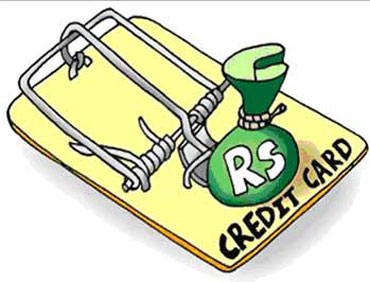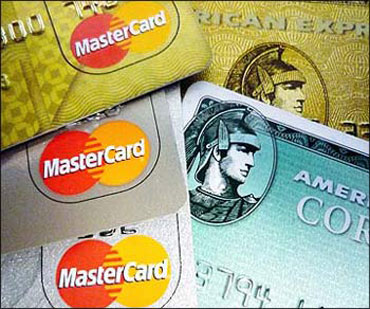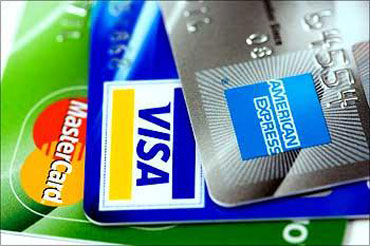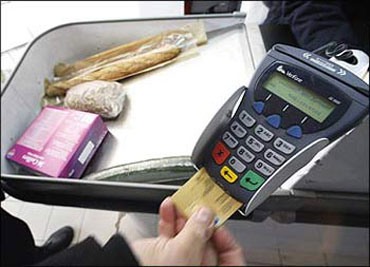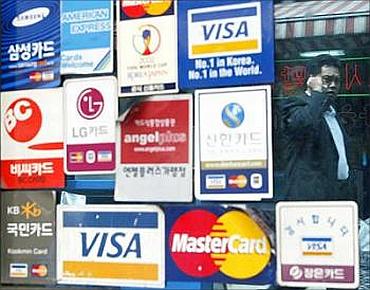 | « Back to article | Print this article |
The credit card statement demystified!
Users of credit cards receive the credit card statement akin to a bill every single month. Many of us have the tendency to just pay the amount due, without caring to give the bill a proper reading.
Sometimes this habit can prove to be costly. Frauds or incorrect payment info might be overlooked.
Do you tend to procrastinate or ignore reading the bill because you do not understand it. The terminology used is confusing? Read on to understand your credit card statement better.
Credit card number: This is a unique 16 digit number assigned to you and super imposed on your card. This number is needed to pay your credit card bills through cheque or also for any correspondence with the credit card issuer.
Keep this number handy so that you can report to the credit card issuer in case of any theft or fraud. This number will always be stated on your credit cards statement.
Credit limit: This is the maximum amount the credit card issuer allows you to borrow. This limit is based on you income profile and your payment track record.
A good payment track record will help in getting your credit limit enhanced and vice versa. If you exceed the credit limit, the credit card issuer will charge an overdrawn fee.
This fee is a fixed percentage of the overdrawn amount subject to a minimum and maximum amount.
Click NEXT to read on. . .
The credit card statement demystified!
Available credit limit: This is the difference between your credit limit and the amount you have spent (total amount due). If you have spent Rs 20,000 and your credit limit is Rs 100,000, then your available credit limit is Rs 80,000.
Payment due date: This is the date by which the payment should be made i.e. you account should be debited and the credit card issuer should realize the amount on or before this date. So you should be aware that is not the last day on which you can issue the cheque but it is the date by which the cheque should be realized.
So issuing the cheque before the due date is not good enough if the amount is not credited into your credit card account by the payment due date. Paying your credit card bill before this date is key to managing your credit card history and your credit score.
Statement date: This is the date on which the bill has been generated. This date is used to calculate the interest amount if you do not pay the full outstanding amount by the payment due date, even though the due date may fall weeks after the statement date.
Click NEXT to read on. . .
The credit card statement demystified!
Cash advance/ Cash limit: Credit card issuers allow you to withdraw cash from the ATM but the amount of cash that you can withdraw is not your credit limit, there is a separate limit called the cash limit.
The cash limit is usually 30% of your credit limit. A cash advance will have a one-time transaction fee levied which could be to the tune of 2.5%-3% of the cash withdrawn. In addition interest charges will start accruing immediately. The interest charged on cash withdrawals are more than those charged on your purchases.
So this facility is best used only when you need funds on an emergency basis.
Total amount due: This is the total amount outstanding on your credit card i.e. the amount you owe to the credit card company. This amount is a cumulative amount comprising of interest or any other charges such as over drawn fee among other things.
Click NEXT to read on. . .
The credit card statement demystified!
Minimum amount due: The credit card issuer fixes a minimum amount that you need to pay every month which is typically a certain percentage of the total amount due. It is typically 5%-20% of the total amount due. Non-payment of the minimum amount is treated as default and a late payment fee will be levied.
If you opt to pay the minimum amount due, the unpaid amount is carried forward to the next billing cycle and so on, under revolving credit facility.
What you need to note here is that, any fresh purchases will not enjoy interest free period i.e. you start paying interest from the day on which the purchase has been made. This will continue till the total amount due has been paid for.
Also even if you pay the minimum amount due, interest will be charged on the total amount due which will include the minimum amount due. So suppose you have paid 60% of the total amount due before the due date, interest will be charged on 100% of the total amount due rather than on the balance 40%.
Thus opt for paying minimum amount due only if you're running short of money to pay off the total amount due.
Click NEXT to read on. . .
The credit card statement demystified!
Transaction details: All transactions executed through your credit card, which includes purchase, payments made will be recorded under transactions details.
Also any charges levied by the credit card company such as interest, annual fee, late payment charges among other things will also be listed here. It is essential that you go through these details in order to spot any discrepancy.
Reward points: This is the record of the points accumulated till date. The summary will give details on the opening balance, points redeemed and balance points. You can redeem the accumulated points on a need basis. Each credit card issuer has a different method of redemption.
So next time you receive your credit card bill, take the time to read it carefully. Not only will it protect you from fraud but it will also help you manage your cash flow better.
Powered by
BankBazaar.com is an online marketplace where you can instantly get loan rate quotes, compare and apply online for your personal loan, home loan and credit card needs from India's leading banks and NBFCs.
Copyright 2025 www.BankBazaar.com. All rights reserved.
